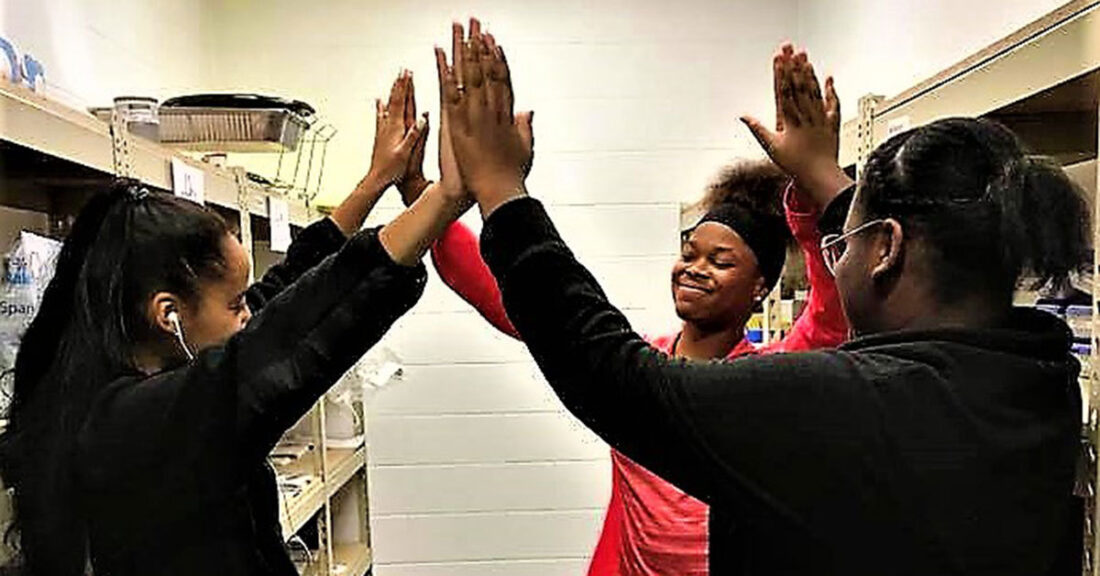The JAG Advantage Brings Trauma-Informed Care to Youth Employment

Photo provided by JAG Kentucky
For 40 years, Jobs for America’s Graduates (JAG) has worked across the nation to help young people build professional skills, earn credentials, gain employment and enter postsecondary education. Through classroom learning, coaching, leadership development, job-placement and other services, youth and young adult students are set on pathways to academic and economic success.
What Is the JAG Advantage?
The JAG Advantage is an approach created by the organization to provide student-centered services that help young people achieve their fullest potential, gaining an advantage in today’s emerging workforce. The framework consists of three components:
- project-based learning, in which students build communication, collaboration and critical-thinking skills through long-term projects that often include local employers;
- trauma-informed care, which emphasizes practices that help JAG instructors address students’ stress and trauma and remove barriers they face; and
- employer engagement, in which employers provide students with opportunities to learn and grow by providing them with real-life leaning experiences and opportunities to explore career opportunities.
Started in 2018, JAG plans to fully incorporate the new approach into its service delivery by July 2020 — after it has trained all its 1,400 specialists who work with youth and young adults.
Addressing trauma to improve workforce training
A major reason JAG undertook efforts to improve its programs was a growing recognition of how trauma affects how young people learn, engage in the program and succeed in the workforce.
To create its new approach, the organization drew on its decades of experience working with young people and lessons from its participation in the Casey Foundation’s Learn and Earn to Achieve Potential (LEAP)™ initiative, which works with those navigating some of life’s most challenging circumstances, including homelessness or involvement in the child welfare or justice systems.
“We encouraged our LEAP partners to adopt or deepen their trauma-informed practices for opportunity youth,” says Patrice Cromwell, Casey’s director of youth economic opportunity. “We’re pleased to see that JAG is asking all its affiliates nationwide — not just its LEAP sites — to use these practices going forward.”
One such partner is Jobs for Arizona’s Graduates, which has deepened its focus on trauma-informed care in recent years as part of its LEAP work. For instance, if a student is often absent from school, an education specialist will talk to the young person to learn more about his or her situation. Sometimes, specialists find that students are facing circumstances that interfere with their schooling that need to be addressed — such as taking on jobs to support their families or caring for a sick loved one.
“Trauma-informed principles help to equip our coordinators to advocate for our students,” says Dianna Harrier, director of operations with Jobs for Arizona’s Graduates. “We try to help understand what’s behind young people’s behavior before taking action, especially disciplinary solutions.”
Engaging with employers
The organization also attempts to communicate effectively with its employer partners about the needs of its students. For instance, it has suggested that local employers with long hiring processes speed them up, as many young people can’t wait weeks or months without income and will likely take other opportunities that come up faster.
The future of JAG
JAG also plans to double the number of students it serves to 150,000 in 2,500 communities over the next four years, greatly increasing the number of young people who will benefit from the new approach.
“The JAG Advantage has offered a framework to better engage employers, students and our staff,” Harrier says. “We think it’s a terrific approach that highlights the best of what we have to offer — and other local and national workforce organizations should take notice.”





